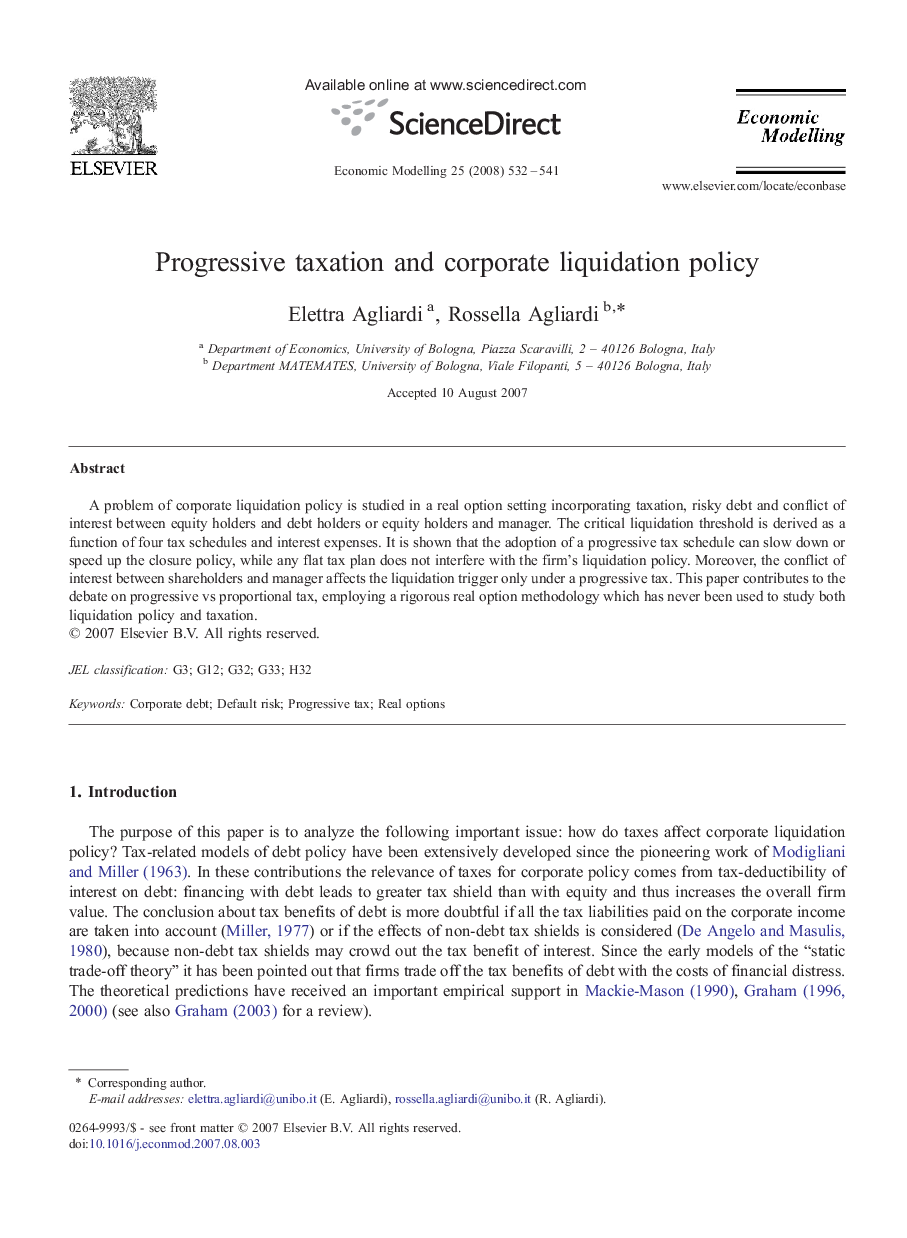| Article ID | Journal | Published Year | Pages | File Type |
|---|---|---|---|---|
| 5055993 | Economic Modelling | 2008 | 10 Pages |
A problem of corporate liquidation policy is studied in a real option setting incorporating taxation, risky debt and conflict of interest between equity holders and debt holders or equity holders and manager. The critical liquidation threshold is derived as a function of four tax schedules and interest expenses. It is shown that the adoption of a progressive tax schedule can slow down or speed up the closure policy, while any flat tax plan does not interfere with the firm's liquidation policy. Moreover, the conflict of interest between shareholders and manager affects the liquidation trigger only under a progressive tax. This paper contributes to the debate on progressive vs proportional tax, employing a rigorous real option methodology which has never been used to study both liquidation policy and taxation.
